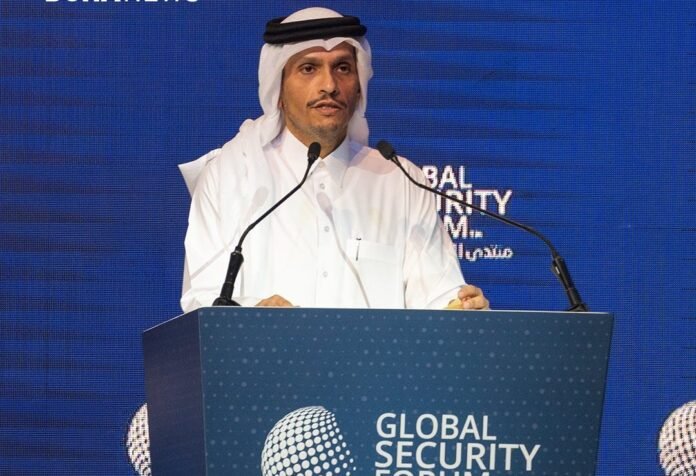Qatar’s Prime Minister and Minister of Foreign Affairs, Sheikh Mohammed bin Abdulrahman bin Jassim Al Thani, officially opened the 2025 Global Security Forum on Monday. This year’s event, now in its seventh edition, is being held under the theme: “The Impact of Non-State Actors on Global Security.”
The forum will continue through April 30, drawing international experts, government officials, and policy strategists. Participants are gathered to address evolving global threats and propose fresh security solutions.
In his opening remarks, the Prime Minister stressed the urgent need for innovative, inclusive dialogue. He pointed out that the world today faces overlapping and long-term crises that demand bold thinking and global partnerships.
“The global order is undergoing profound change,” he noted. “We must re-examine how we define both security and stability. Conflicts no longer pass quickly. They linger, evolve, and often merge, creating layers of interlinked challenges.”
His comments referred to active crises in regions like Ukraine and Gaza, as well as broader instability affecting parts of the Middle East. He urged the global community to adopt stronger strategies in addressing rising threats from non-state actors, which has emerged as the forum’s central focus.
The Prime Minister emphasized that security threats now extend beyond traditional warfare. Armed groups, cyber actors, and transnational networks increasingly shape the global landscape, often outside state control. He called for more adaptable frameworks to counter these trends effectively.
Throughout the forum, speakers will continue exploring the influence of non-state entities on state sovereignty, regional peace, and international cooperation. Sessions will include discussions on hybrid warfare, terrorism, and digital disruption.
The recurring phrase “addressing rising threats from non-state actors” captures the forum’s key message—global peace depends on cooperation beyond borders and beyond traditional security concepts.
Qatar, through this forum, aims to lead in fostering inclusive dialogue and creative policy solutions. By addressing rising threats from non-state actors, the nation reaffirms its role as a key convener in tackling 21st-century challenges.


